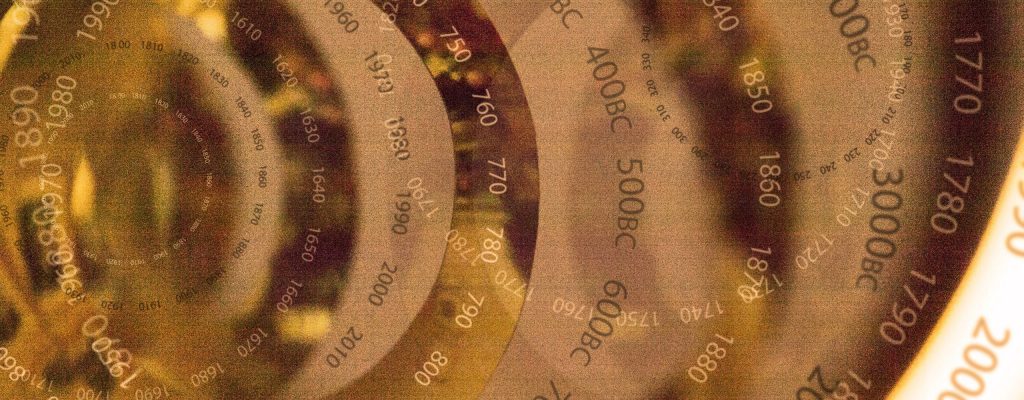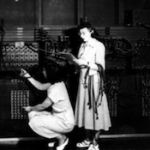mythogenesis
mytho·genesis | ˌmithə+ variants: or less commonly mythogeny mə̇ˈthäjənē plural mythogeneses also mythogenies
Definition of mythogenesis
1: formation or production of myths
2: the tendency to make myths or to give mythical status to something (as a tradition or belief)
[From: https://www.merriam-webster.com/dictionary/mythogenesis]
It’s interesting that when you Google “mythogenesis” Google asks you, “Did you mean pathogenic?” — potentially leading you away to a definition of something that means ‘causing disease’.
It’s also interesting to me that more people probably know what pathogenic means than mythogenic.
However, I’d like to take us beyond definitions and into experience for a few moments … to explore “myth making” as a way of approaching self awareness, self understanding and self mastery.
For years I’ve been on about mastery versus transformation. Many programs of the kind that I myself lead promise transformation. They suggest you need to be different than you are today, so that you can get/have what you don’t today. Yet, this seems to me self defeating, because whatever you think you may want that you don’t currently think you have is predicated on who you are today, and not who you will become when you have whatever it is you’re seeking. Therefore you may find that when you arrive … have whatever it is that you’re seeking … you feel no more satisfied than you were before you had it, because getting it changes you.
Years ago, around the early 1990s I had done some research and realized that people really want the feeling of satisfaction, and they want it to linger and not just as a transient experience.
So I designed a model I called the Satisfaction Cycle®.
This model was predicated on the idea that who you are in this moment right now hold all the keys to your potential through all time, and furthermore that you have immediate access to realizing that full potential instantaneously.
The only requirement …
You must remove that which limits you from experiencing yourself fully as whole and complete … right now.
Yet, most people have been trained to see themselves as only having the potential to be whole and complete in the future. This creates the endless desire for self-improvement, that some folks like to call self-growth or personal development.
Now I’m not against personal development as an idea. In fact I like the idea of improving, but I think of it as refinement, not necessity. To my way of thinking you express the fullness of being you are now seeking to experience by attending to the fullness of being that you already posses, and then you can’t help but to experience personal development.
You see, just attending to something fully and with rigorous focus refines it. I should probably make it clear here that when I use the word “attending” I mean “doing something” not “contemplating” … even if you first contemplate you must take action to complete the process of fully attending, putting the contemplation to rest.
Coming To Rest
Everyone ultimately wants to come to rest within themselves.
This doesn’t mean stopping your action or activity, it means being a peace within yourself, giving up the relentless sense of chasing something that you think you need or want, but don’t yet have.
Coming to rest means realizing this moment is complete unto itself, and stepping fully into it to experience it completely.
The paradox of coming to rest means that you begin have more time and energy available to do things you haven’t yet done, and you do them without any undue urgency or, sense of threat or overwhelm. You begin moving through the world from a position of self-mastery.
Others can’t help but to notice when you possess self-mastery.
Self-mastery expresses itself as an air of calm and control beyond the chaos of the moment. Regardless of the urgency of the moment, whey you possess self-mastery you aren’t urgent. Think of the surgeon who makes critical life and death decisions in seconds, and retains a calm deliberate certainty in the moment about the choices they make. Or, the naval fighter pilot who’s plane hurdles through space faster than the speed of sound, and calmly and deliberately controls their craft with the certainty required to land it safely on the rolling deck of an aircraft carrier in the middle of an ocean deep in the darkness of night.
I remember a story that I was told from when I was too young to remember. My grandmother, my father’s mother, who I spent a great deal of time with, was watching over me and I spiked a very high fever. My then young unmarried uncle, told me he was very concerned and felt like I needed to be taken to the doctor or the emergency room. My grandmother instead told him not to worry that the fever would break and I’d be fine. She repeatedly bathed me in cool water and then rubbed alcohol on my feverish body, three times … four times … until as she predicted, the fever broke and I “slept like the dead” according to the way my uncle tells it.
When I woke the next morning it was as though I had never had a fever, and as usual ran about leaving a wake of minor destruction in my path. Never though did my grandmother’s composure waver. Whenever she was engaged in a task of any kind she possessed and evidenced an air of self-mastery always as I remember her, even in those moments of lucidity that had become sporadic into her 103 year when she finally passed peacefully one night during her sleep.
When you possess self-mastery in the simplest moments you can extend it to the most chaotic moments. I like to think of this as keeping your head about you when all those around you are losing theirs. However, I find most people only look to access mastery of this kind when they are already in crisis, failing to seek it, practice it, and experience it in the mundane moments of their life when they more easily access it to make it a habit and pattern of being they recognize for themselves.
Stop And Smell The Roses
Mastery and mythogenesis meet where you experience your own autobiographical narratives.
For the most part the world will impose certain narrative on you … stories about who your people were/are, stories about the place you come from, stories about how you look and how that fits the current fads of appearance and beauty, stories about how you should be and what’s important or not … it goes on and on.
For instance, one of the great narratives shared and told in many places refers to the story of education … either you’re one of the smart kids or you’re not one of them. This of course has less to do with being intelligent than it does with conforming to demands to do it they way you are told. In many measures of intelligence in education creativity becomes a detriment. Yet, the label of being a smart kid, or not, puts an indelible mark on many people before they have any sense of personal choice about it.
Another common narrative has to do with what “side of the tracks” you come from … was your family wealthy or not, are you the right kind of person, do you practice the ‘right’ religion, do you have the ‘right’ skin color, do you speak the ‘right’ language and pronounce it in the ‘right’ way, are your people from the ‘right’ place, do you were the ‘right’ clothes, to you eat the ‘right’ foods, to you practice the ‘right’ traditions … and on it goes, and the narrative builds about whether or not you are the ‘right’ kind of person.
The Hermenutic Option: Despite the impositions of the narratives imposed upon you, you always have a choice about how you interpret them … you get to set the meaning.
Trying to “fix” the meaning of the narratives that have been imposed upon them, beyond their initial control, keeps a lot of people chasing a dream about who they could be or should be … but in their own minds (and maybe by dint of cultural interpretation too) ain’t.
Many folks are lost in trying to manifest a life that matches some narrative that they don’t own … one that ain’t their own.
You always get to choose your own myth, the story you are living into, and the way that shapes how you interpret the narratives of your life, as long as you want it and make that choice.
Choosing your own myth frees you. Your myth is always bigger than any of the narratives it contains.
You really have no choice as to whether or not you’ll be living into a myth, if you’re very clever you only really get to choose the myth itself.
By the time you were seven or so, a myth was present for you … and you’ve either be A) living into it unthinkingly, B) resisting it desperately, or C) revising it and choosing one for yourself.
The book of your life was begun by others, but you don’t need to remain in that story.
Whenever you choose you get to take over the authorship of your own life, and begin scripting a new life if you so desire it.
The moment you take over the myth-makers role in your own life you immediately begin reshaping the entirety of the story that’s been told so far. You don’t need to rewrite your past stories …
The very act of deciding who you are now in this moment, and who you are becoming, imposes a new meaning on who you have been.
This simple act of taking control of your own story, shaping the narrative that’s being told, transports you into the beginning of possessing self-mastery.
Keeping it simple, you cannot possess self-mastery if you don’t possess your own story.
In many old fairy tales the hero’s/heroine’s heart is removed and keep in a box by some evil witch or sorcerer and to become whole, often even to live and prevent their own untimely death, the hero/heroine must discover where their heart is hidden and reclaim it for themselves.
The heart at the center of your being that you are seeking is your myth.
Once you’ve discovered your myth, the essential story of who you are, have always been and are becoming, everything about you will begin to coalesce and reform to accept this as the centering and guiding essence of your being. You’ll feel this happening within yourself, and you’ll see the manifestation of it without as well all around you. As you continue others will also begin to notice it and will respond to it in spoken and unspoken ways.
You will be known for your acts, but you will know yourself more because of the myth you are making, and the master you’ve become.
It is of little value to master all about you, if you have left the mastery of yourself behind.
Just some thoughts to ponder as a new dawn approaches …
Joseph Riggio, Ph.D.
Somewhere on the East Coast of the United States at 05:32 AM EDT






 Your choices aren’t only limited to the way you tie your shoes … and we’re not in Kansas anymore!
Your choices aren’t only limited to the way you tie your shoes … and we’re not in Kansas anymore!